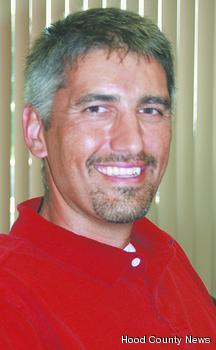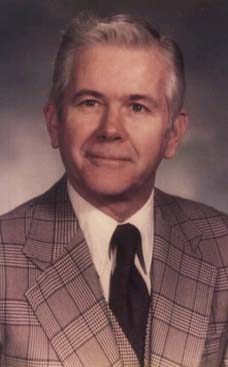
“I did a lot of reforestation work in Ecuador, and when that was over I wasn’t ready to come home yet,” he said. “I was offered a job as a guide in the Amazon. I knew a little about rain forest dynamics, and I spoke Spanish because I’d been in Ecuador.
Roger Arbabi spent a year as a guide in the Amazon in South America in 1992-93 after serving with the Peace Corps in Ecuador for two years
The Rvier Wild
Exploring the legendary Amazon
(Wednesday, September 21, 2005
by PETE KENDALL
The Rvier Wild<br>Exploring the legendary Amazon
Roger Arbabi (right) spent a year as a guide in the Amazon in South America in 1992-93 after serving with the Peace Corps in Ecuador for two years
The Amazon Rain Forest is not Marlin Perkins’ Wild Kingdom.
Instead of the pocket-sized salamander, there is the whip-like anaconda. Instead of the goggle-eyed bass, you have the man-eating piranha.
But don’t believe every horror story you hear about these cuddly vertebrates of South America, Roger Arbabi said.
They’re harmless as long as it’s not their dinnertime.
"Anacondas are a lot of fun," Arbabi, a Granbury resident and former Amazon guide, said. "You’d see them stretched out on the banks down there. The first big one I saw, I had a boat full of tourists. I pulled the boat sideways along the bank. The embankment was a little higher than the boat.
The Rvier Wild
Exploring the legendary Amazon
The Amazon rain forest, which is slowly fading away in the 21st century
"The anaconda was about 15 feet long. I hopped out of the boat to look. It smelled so bad that I thought it was dead. It wasn’t moving. When I poked it, it jumped. When it jumped, it went straight toward the tourists.
"There was a gap of water between the bank and the boat, and that’s where it slithered in."
The anaconda, he said, was likely more horrified than the tourists.
The Rvier Wild<br>Exploring the legendary Amazon
Arbabi as he appears today
"But if you were to harass an anaconda, it could grab you and take you underwater and drown you."
The piranha is already under water. So, unfortunately, are you. Nothing to fear, though, Arbabi said.
"The piranhas were never a problem. I enjoyed taking the tourists swimming for a couple of hours. When we got out, I’d say, ‘Oh, by the way, there are piranhas in there.’ To demonstrate, I would put a piece of meat on a hook with a metal leader and throw it into the water.
"Within 30 seconds, the meat would be gone. Piranhas will go after blood, but they’re not typically gregarious. I couldn’t tell you why they don’t go after swimmers. I think they would be scared away by the sheer size of a human."
Accidents can happen if the piranha mistakes the human for a floating plantain.
"I was bitten by a piranha one time," Arbabi said. "We’d been in the rain forest for 10 days and hadn’t showered. We were stinky. I went into the water in a very muddy area. I had mud up to my knees and water up to my chest.
"I felt a bump on my chest. When I looked down, I was gushing blood. It was a piranha. Nothing else takes the skin off that way. Their teeth are like razors. I got out of the water very quickly."
Arbabi’s one-year stay in the Amazon in 1992-93 followed his two-year tour of duty with the Peace Corps in Ecuador.
"I did a lot of reforestation work in Ecuador, and when that was over I wasn’t ready to come home yet," he said. "I was offered a job as a guide in the Amazon. I knew a little about rain forest dynamics, and I spoke Spanish because I’d been in Ecuador.
"I went through a three-week training course that familiarized me with the area where I would be working."
The first six months, he guided American tourists. The last six, he guided scientists and researchers. The latter group roughed it slightly more than the former.
"The posh program was for rich Americans. We had three chefs aboard a big riverboat. The last six months, I worked with the researchers. We would normally string hammocks between trees to sleep."
Arbabi became acquainted with the Cofan and Quechua tribes, which provided guides for the guides.
"We went into the rain forest with a group from Ohio State that was studying a particular kind of monkey that doesn’t hang around the rivers," he said. "We followed the monkeys for 10 days.
"We always knew we were between two rivers in a 100-square mile area, but it’s hard to tell exactly where you are in the jungle. To me, it all looked the same. We had to have a guide to show us."
Assorted preconceived notions regarding the Amazon are incorrect. It’s not all that hot, Arbabi said, and bugs aren’t all that bothersome.
"The temperature is actually pretty mild, mostly in the 80s during the day. In the evenings, it gets cool. And there are only pockets in areas where there’s a bad bug problem. You do have the one-inch ants. Get bit by one of those, and you’ll run a fever."
In which case, you’d probably want to consult your trusty Cofan guide.
"The Cofans are knowledgeable about the medicinal plants and their values," Arbabi said. "They’ll tell you what vine to take for a particular fever. It’s amazing how well equipped they are to deal with different illnesses."
Cofans are not a lot like us. That, of course, is not all bad.
"Their life is hard," Arbabi said. "The average life expectancy is 45 years. There are no telephones or radios. They now have pots and pans and machetes. One or two guys might have a gun … not necessarily any bullets but a gun."
Weapons of some sort are recommended in the Amazon.
"There were rumors that jaguars would get out of the way of the peccaries (wild pigs) by climbing a tree. The peccaries would supposedly eat the bottom half of the jaguar.
"Electric eels live in the Amazon. If you step on the tail of a sting ray, you have to pull the barb up through the top of the foot to get it out. It can be dangerous."
The caimans, essentially broad-headed gators, were playful.
"They only grow to about 15 feet," Arbabi said. "Every week or so, we’d take the tourists out at night to show them caimans with a spotlight. If they were small enough, I’d catch them by the tail. You wouldn’t want to grab the tail of a large caiman."
Arbabi intends to revisit the Amazon someday.
"I would like to go back and stay with the Cofans," he said. "I would be accepted by them."
He understands the hardships he would face.
"I was there a year and had typhoid fever and systemic staph infections. My hair would fall out. My shoes would turn green just from the moisture in the air."
Hardships are quickly forgotten in the Amazon, he said.
"It’s such a beautiful place."
Pete Kendall can be reached at (817) 573-7066, ext. 254, or e-mail pkendall@hcnews.com












